Should Local Businesses Be Blogging or Is There Little Benefit?

I often talk about how blogging is great for any business, and I'm far from alone in that. I'm biased, sure, but I definitely think blogging can benefit virtually any kind of business. There are only a few sorts of businesses that have some difficulty benefitting from blogging:
- Businesses with unique, highly exclusive clientele who need to be personally approached.
- Businesses who have a very limited potential audience made up of people who don't typically read blog posts.
- Businesses that are somehow limited in their service area.
The first group is niche groups like personal trainers for the rich and famous. What does Chris Pratt's personal trainer need with a blog? Well, they could benefit from a blog to showcase their skills and pull in other clients, build a training business, sell products, and other marketing strategies of that nature. That's not exactly the best example of a business that has a hard time with blogging. A better example might be a business that sells mega-yachts. No one is browsing the internet to buy a yacht only a billionaire can afford; those businesses have people dedicated to talking directly to those billionaires, and they would have a tough time selling any by blogging about them.
The second category is niche B2B companies. If your company manufactures one specific part for airplane engines, what are the chances a blog is going to connect you with any airplane manufacturer that doesn't already have you on speed dial? Pretty small, right?
The third category is where things get interesting. That's local businesses, and that group has a ton of people, many of whom I work with at my content marketing firm. So, am I saying my services aren't necessary for local businesses?
Let's dig into this a bit.
Is Blogging Valuable for Local Businesses?
Small, local businesses might not see the value in blogging for the same reason I listed above. What's the point of someone in New York reading your blog posts if your business only serves a small portion of Los Angeles?
The way I see it, there are only two reasons why you wouldn't want a blog as a local business. Either you don't want to grow and you're perfectly fine being a small singular store susceptible to the whims of the community, or you're somehow restricted in your growth by external regulations. For example, the legal CBD and cannabis industry is growing in popularity, but a local shop might not have much room to grow until regulations catch up and allow it to expand nationwide.
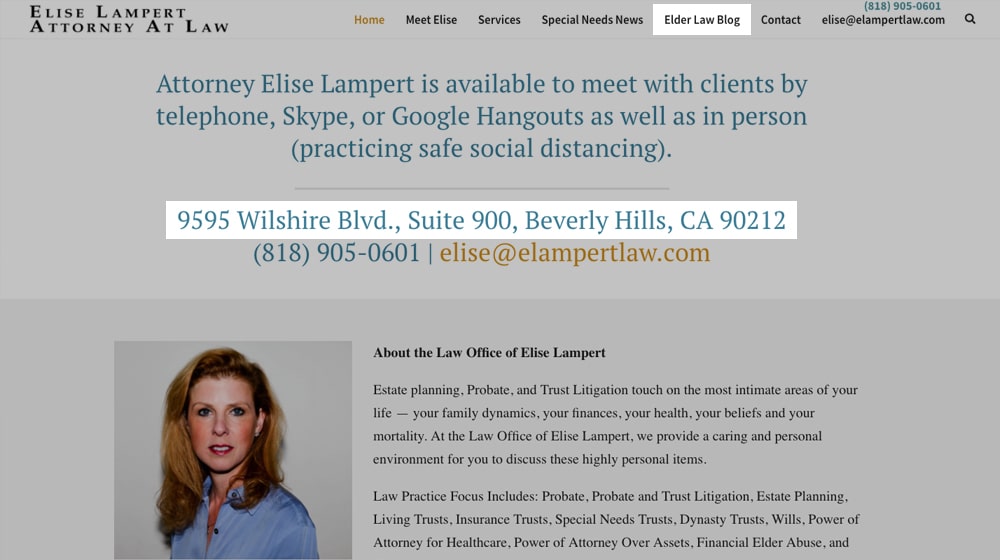
Most small businesses don't fall into this category. In fact, many small, local businesses could easily expand if they could reach the people who would be interested in their product or service, and a blog is a great way to do that. So, let's talk about the benefits of blogging, specifically for local businesses.
The Benefits of Blogging for Local Businesses
Blogging has a lot of benefits attached to it, and while we often think of them as benefits for big brands, they can also be beneficial to small and local businesses as well. After all, the only thing that separates you from Amazon is "reach", right?
Blogging Increases Your Website Traffic
Your website is an avenue for delivering information to your fans and customers. Whether it has directions to your store, store hours, a list of products or services, a calendar where they can book appointments or whatever else; it's all valuable information, otherwise, you wouldn't have put it on your website.
When you blog, your site can be picked up by Google and the other search engines, which can deliver more people to your site.
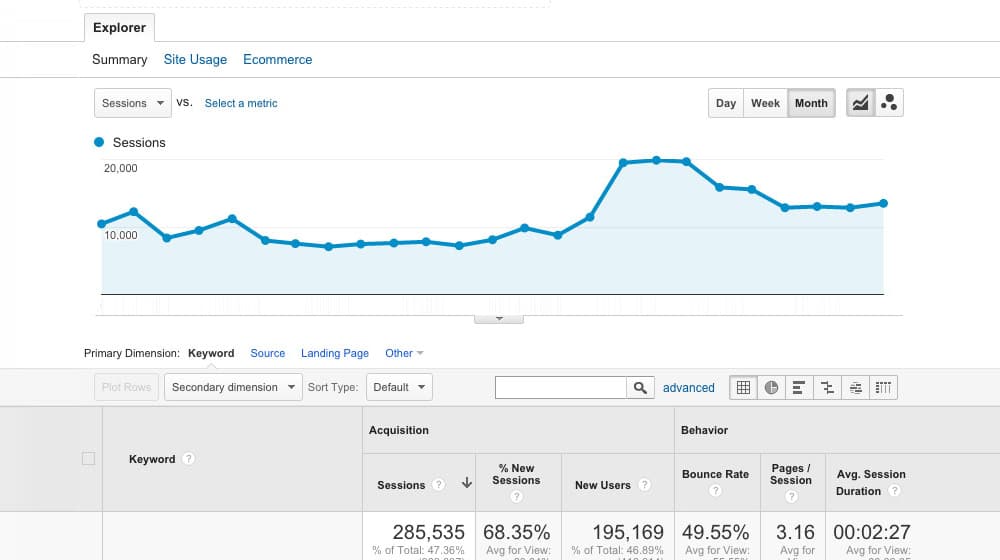
"But those people might never visit my store!" Sure, that's a valid criticism, except for one thing: the people who find your site are going to be searching for specific topics, and it's up to you to determine what those topics will be. Don't write about topics that won't attract the right people!
Blogging Helps Generate Leads
There's one major takeaway that a lot of small businesses forget about: people travel. If I'm from New York and I'm in Los Angeles and I'm looking for a good store to buy craft supplies, I'll check the internet, and the site that comes up is the one I'll be more likely to visit. It doesn't matter that I'm in New York and I'm far away from their service area; eventually I'll be in the service area, and then I'll stop in. The blog worked. Maybe it's not your core traffic, but every conversion is a conversion, right?
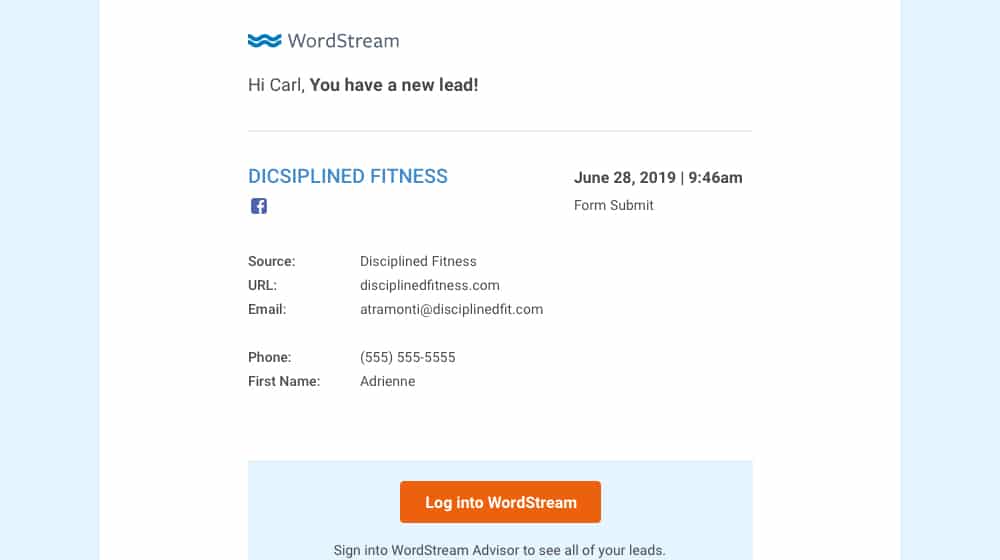
Generating leads, regardless of where those leads are, helps you sell. Even if your local business doesn't sell or ship online, generating leads of interested parties who may come to visit locally is valuable as well.
Blogging Attracts Links and Helps Make You Visible
A lot of the value of a blog comes in its visibility, and a blog is its own best tool for growing that visibility. Every piece of content you publish is a piece of content that can be linked to by other websites.
Local businesses can take advantage of a lot of avenues of promotion that larger businesses don't have access to. City websites and tourism boards, local directories, local reviews, community sites; they're all great. They might not have the pure SEO power of some mega-sites like Forbes, but they're still decent, and some of them – news sites in particular – can be syndicated, for even more value spread out around different sites.
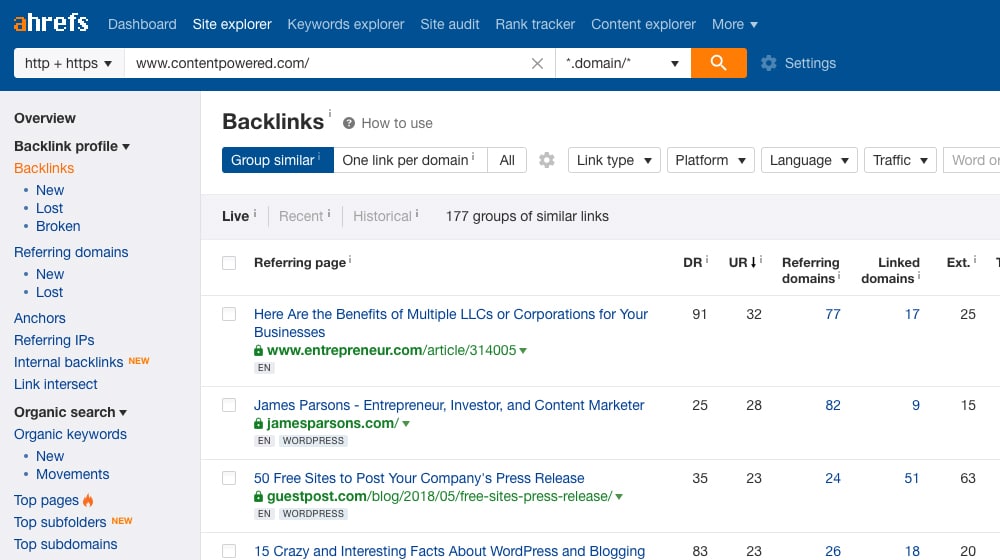
When local businesses blog and attract hard-hitting traffic and links, that can put you at a huge advantage in your local rankings. If your competitors aren't doing that and they have a smaller site without much authority, blogging could help you blow past them.
Blogging Fuels Your Social Media Presence
One of the best things a local business can do is start up a social media presence. It builds a sense of connection with the community, it helps you network with other local brands and influencers, and it helps you attract and convert locals.
So what do you post? You can't always just post about what sales you have and what's going on down at the shop. Even the most active local businesses get stale with the same kinds of posts over and over.
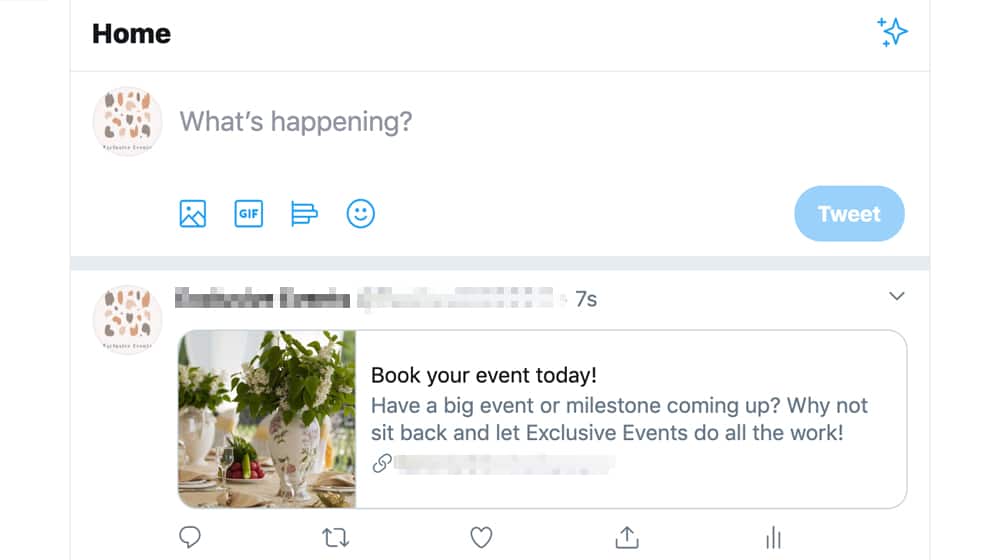
Blogging gives you content you can post to fill your feed, spur on discussion, and attract new users. Insightful content – from a brand a local already trusts enough to follow – can be shared and gain a lot more exposure than you might expect.
Blogging Builds Brand Trust and Authority
As a local brand, why do people choose to shop with you rather than your competitors, or an online store selling the same things you do?
In some cases it's convenience; they can pick up an item rather than waiting for shipping. In some cases it's loyalty; they can support their local community rather than a faceless corporation. In some cases, though, it's about trust. They want to trust you because you're a small, local company. But how do you build that trust?
In part, trust is built through years of service, through customer interactions and positive reviews, and through fair dealings. In part, though, you just need to showcase that you know what you're talking about. That's where blogging comes in. By writing about your products, your niche, your community, your industry, and tying it all together, you prove you're an expert on the subject, you share your knowledge, and you're worth that trust.
Blogging Helps You Reach Broader Markets
Do you want your business to grow and expand? Do you want to reach out to a broader market? Nothing says you need to suddenly be open to the entire world, but what about the next city over, or the next county over, or the next state over?
We create blog content that converts - not just for ourselves, but for our clients, too.
We pick blog topics like hedge funds pick stocks. Then, we create articles that are 10x better to earn the top spot.
Content marketing has two ingredients - content and marketing. We've earned our black belts in both.
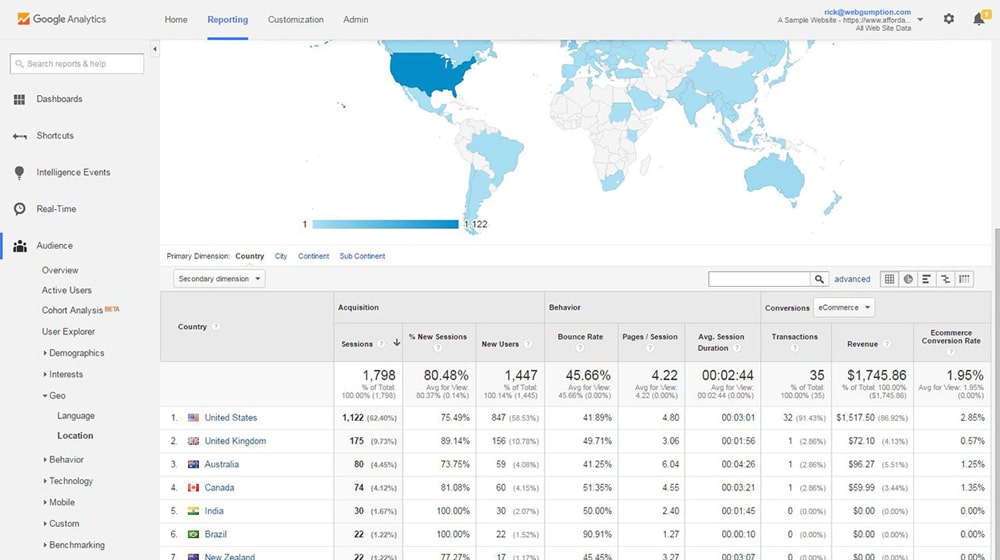
The process for achieving this can be centered around a blog, and it oftentimes is. You start by running your blog and drumming up a reputation. Target and draw in people from nearby locations, close enough they're willing to make the trip but far enough that it's not entirely convenient for them. Then deliver the prize: their support has allowed you to open another location closer to them.
That, of course, applies if you're running physical storefronts or providing a service that can't be shipped. You can always use your blog, coupled with a Shopify store, to sell online. It can be more work since you need to deal with shipping and order fulfillment and all that, but it can also be very profitable.
Alternatively, if you start getting a lot of traffic and inquiries from across the country or beyond, you might decide to start shipping and capitalize on all of that extra traffic. This is when blogging starts to become very powerful.
Blogging Gives You Ammo for Your Mailing List
Keeping in touch with your customers and potential customers is a huge boon to any business. Remind them that you exist, keep yourself in their awareness, and you're more and more likely to actually get them to come and visit your store.
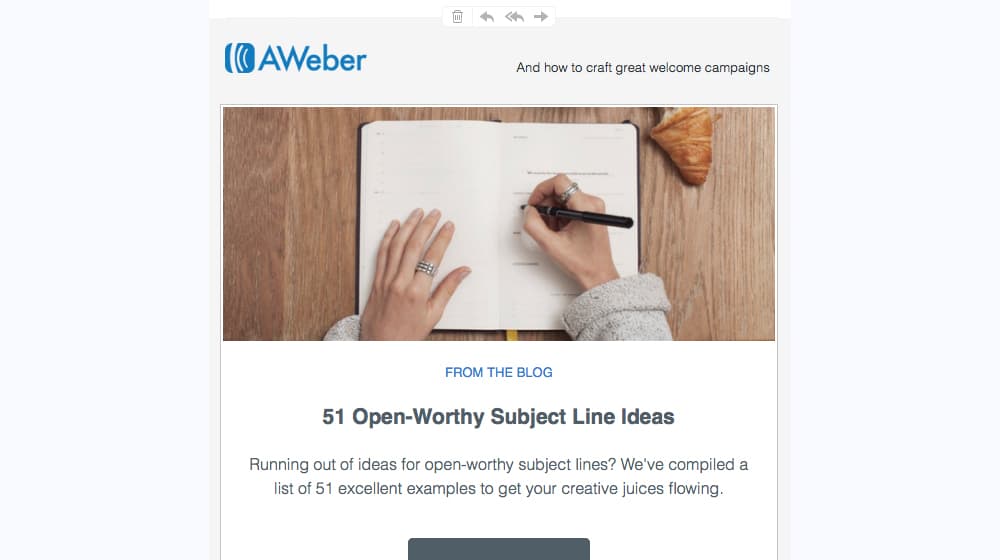
Blogs are a great way to build a mailing list, and a mailing list is a great way to keep in touch. "Building a mailing list" is, in fact, such a central benefit to blogging that huge guides have been written about just that. In fact, here's a good one now.
There are plenty of other benefits to be had from blogging, of course. Many of them aren't specific to local businesses, but any benefit a business can get from blogging is a benefit a local business can get.
A Drop in the Ocean
In a sense, you can think about the internet as a whole as the ocean. It's vast, enormous, and there are billions of fish out there swimming around.
A local business is dipping a toe in the water off a pier. They can cast a handful of fishing lines out into the water around a shoreline, and that's their local service area. They need to rely on the fish coming to them in that specific area.
When you can tap into the internet at large – through blogging – the whole ocean opens up. You can take a boat out, or a fleet of boats, with nets and lines and the whole nine yards. You can capture fish who would never have come close to shore. The metaphor is a little strained at that point, but you get the idea.
The wider the audience that you can deliver goods and services to, the more effective blogging is, as every reader then becomes a potential customer.
Reasons Blogging Won't Work for Your Local Business
There are always going to be a few reasons why blogging might not work for you. Some of them can be fixed, but others might not. I would be remiss if I didn't mention those reasons and their potential refutations.
Your Service or Goods Doesn't Travel or Scale Well
This is probably the biggest one that hampers blogging efforts. One of the biggest benefits of blogging is exposing you to a larger audience of potential customers, but if your customers are all outside of your service area, they aren't customers.
Let's use a lawn care service as an example here. You have a handful of workers, a truck and a trailer, and a couple of lawnmowers with the assorted extra tools to clean up edges and stuff. You work within a city, and you have a defined area where you can work.

You start a blog, and you start attracting people to look into your services because you pride yourself on your excellent work and quality of service. The problem is, they live in the next state over. Are they valid customers?
You're presented with three choices. You can ignore them as customers. "Sorry, we don't service your area." It's unfortunate, but the alternative is the second choice. You can bend your rules for them, take the long commute, and keep them as a customer. Maybe they'll be satisfied and happy, but unless you're charging more, you're losing money on the commute.
The third option is you can use it as an opportunity to expand. Open a second branch, hire more people to do the work the way you want it done, and take on more customers. You have the customers ready, all you need to do is leverage the money to expand.
Therein lies the problem: making such an expansion of your business is expensive. You might need to buy another truck, another trailer, and another lawnmower, plus hire people to operate them and spend the time training them. That's a lot of work, and only a small handful of customers might not be worth it. It's just a determination you need to make.
A lot of companies (including some of our clients) will accept the job and contract it out to a local company in their area. They earn a cut of the sale, all parties sign some paperwork for liability, and you never have to leave your office chair. Not a bad move, especially when you have people calling you from all over the country for this. Food for thought.
You're Unable to Ship
Sometimes the products you sell can't easily be shipped. Maybe they're fragile and you don't trust shipping. Maybe they're extremely heavy, large, or bulky, and would require very expensive custom shipping. Maybe there are regulations about specific materials shipping across state lines, or you need a license to sell in other states, or some other restriction is in place. Or, maybe the low cost of the item doesn't make sense financially to ship, like selling potting soil, which costs more to ship than it's worth.
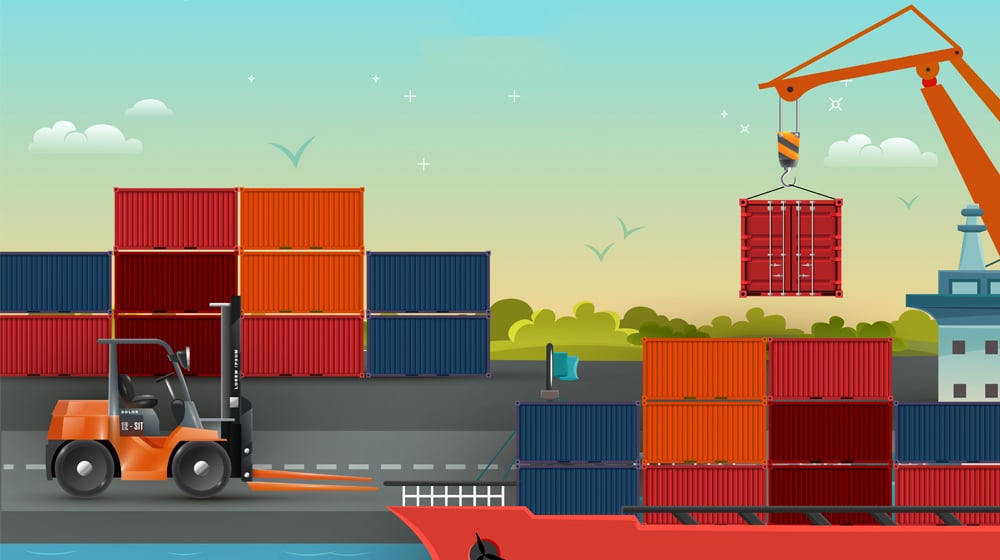
In these cases, a blog attracting more people from outside of your shipping area doesn't do you a lot of good. At the same time, though, you may be able to diversify into some products that you can ship outside of your area. At the very least, things like eBooks and online resources can work surprisingly well.
Do you want to branch out into that? That's up to you. Plus, a blog can attract more people within your shipping area as well, people who want what you sell but didn't know about you.
Your Energy Might Be Better Spent Locally
A blog takes time and money to run, and you need to know what you're doing so you can monitor it and see if it's working. In fact, not knowing whether or not it's working is the number one mistake small-time bloggers make.
The trouble is, a lot of local businesses haven't fully capitalized on the market around them. The time, the energy, the expenses associated with blogging, they might all be better spent elsewhere.
That's not to say that blogging isn't bad, it's just that there are other, easier ways to grow your customer base before you turn to a blog marketing strategy. Blogging should still be on the agend; it's just not the #1 item on the list.
Still, if you're a local business and you're interested to see what blogging can do for you, give me a call! I get asked this question every day and it's one that I'm uniquely qualified to answer it.
Are you considering blogging for your local business, or have you been successful with blogging for a local business in the past? Let us know in the comments section!






September 03, 2020 at 10:00 pm
Well... I'm sold! My Shopify blog has some cobwebs on it but I'm going to start blogging thanks to your advice. I understand that some local business would not benefit from blogging but even if it won't increase my sales I think I will still benefit from the SEO advantages and adding value to my visitors. I hope it helps our eCommerce sales as well.
September 06, 2020 at 2:24 am
Hi Kelly! If you have an eCommerce site, you're already a step ahead of the curve, that's great. If you can ship outside of your city, you'll make full use of all of the visitors landing on your site across the country. Every visitor becomes a potential customer.
If you're just starting out, make sure you read this post that we wrote as well: "How Long Does It Take for Blogging to Start Getting Traffic?"
September 07, 2020 at 7:30 am
Good article. It's tough when I have local businesses inquire about blogging, some of them knock it out of the park with blogging and others aren't as successful. It definitely helps if their products or services can cross state lines though (with shipping or service members being able to visit their location).
Or, at the very least, if their product / service is very expensive or a specialty item that can justify the cost of creating blog articles.
September 07, 2020 at 2:55 pm
Hi Harry! Exactly. A small flower shop that doesn't ship product and only services their small town won't have very much success with blogging, for example - they could have 10,000 visitors to their blog in a month and if none of them are in their city, then none of them can purchase anything, which is a wasted opportunity. Being able to ship is definitely a huge bonus for local businesses. It's not an iron clad requirement, but the idea is that the majority of your visitors should be potential customers, regardless of where they live. It's pretty hard to do that without shipping product.
November 17, 2020 at 3:54 am
I have a small e-comm business and I haven't tried blogging yet. I do FB ads most of the time to promote my store. Do you think it will help me more if I invest in blogging?
November 18, 2020 at 12:32 am
Hey Bryan! For someone who primarily advertises with PPC, I recommend either splitting to a 50/50 budget between social and blogging, or 75/25, so 25% of your budget is going to a more sustainable long-term plan. Blogging takes a long time to start working, so there's no better time to start than today.
I tell my clients that your content has to tick 4 boxes - it has to drive people that could conceivably become customers, it has to have enough traffic to justify the cost, it has to have reasonable enough competition that you have a chance at competing with, and it should be evergreen (still relevant 3, 5, or 10 years from today). If you're blogging about random things or the wrong topics, or if you're not researching what your competition is doing, you could end up wasting money.
Feel free to drop me a line if you have any questions about an advanced blogging campaign, I'd be happy to point you in the right direction 🙂